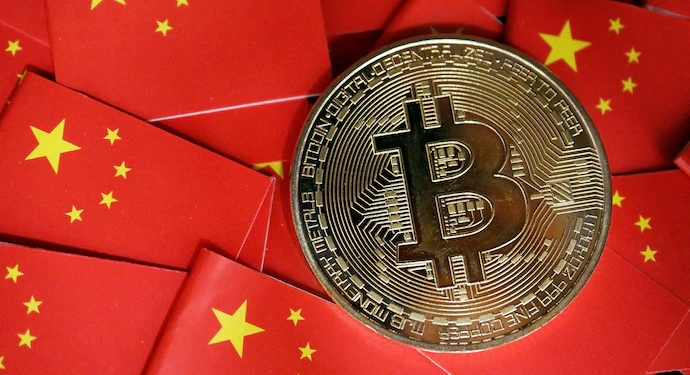- The Chinese government conducts covert sales of confiscated cryptocurrencies through third-party firms to reduce financial deficits.
- China continues to hold a significant share of Bitcoin despite the crypto trading ban which forces the country to utilize complex but legal procedures for converting digital assets into conventional money.
- Partnerships with third-party firms conducting these sales have ignited worldwide doubts regarding policy conformity and financial asset visibility.
In a notable shift despite a nationwide ban on cryptocurrency trading, local governments in China have reportedly begun liquidating seized digital assets, according to sources cited by Reuters.The state uses private services to collect seized crypto assets which enables the conversion of seized property into official revenue due to economic difficulties. The news about cryptocurrency development has received worldwide attention due to China’s strict position on digital currencies throughout the past.
China Quietly Liquidates Crypto Reserves to Boost Public Funds
The Chinese authorities collaborate with private companies to secretly sell extensive numbers of cryptocurrencies including Bitcoin and Ethereum. These assets stem from criminal investigations and anti-money laundering operations where authorities now transform them into fiat currency to handle public budget deficits.
Though China outlawed cryptocurrency trading in 2021, the cryptocurrency trading failed to diminish the country’s status as a major Bitcoin holder because its Bitcoin reserve of 194.000 BTC currently worth $16 billion remains substantial. Thus, China ranks as the second-biggest nation maintaining Bitcoin reserves right after the United States.
Seized Crypto Sales Offer Relief While Avoiding Trading Limits
The crypto assets now being sold were obtained through legal enforcement actions targeting fraud, illegal fundraising, and online scams. While the central government remains silent about its crypto asset transactions no one doubts this move helps stabilize local economies affected by financial instability.
The private sector enables officials to take advantage of the stored digital currency value without active trading participation. The implementation of this approach enables officials to evade regulatory difficulties because of the current trading restrictions.
China’s Crypto Sales Spark Policy and Transparency Concerns
Questions about government assets transparency emerge after this recent development. These budget-relieving sales offer immediate financial support to governments but market experts caution against rapid sale volumes.
Additionally, the practice adds a layer of complexity to China’s crypto policy.Future enforcement actions involving cryptocurrencies could face challenges because of inconsistent regulatory policies adopted by the Chinese authorities.This move by China also puts additional pressure on other countries managing seized cryptocurrencies, especially amid rising global interest in digital assets.
China’s latest actions regarding digital assets regulation reveal an approach which combines practical economic principles with unclear transparency although the country aims to resolve dual priorities of financial governance and budget management.














